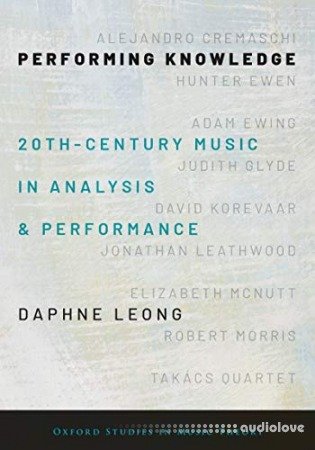Flow: The Rhythmic Voice in Rap Music (Oxford Studies in Music Theory)

English | 296 pages | Oxford University Press (September 3, 2019) | 019067041X | PDF | 12 MB
From its dynamic start at dance parties in the South Bronx in the late 1970s, hip hop and rap music have exploded into a dominant style of popular music in the United States and a force for activism and expression all over the world. So, too, has scholarship on hip hop and rap music grown.
Yet much of this scholarship, employing methods drawn from sociology and literature, leaves unaddressed the expressive musical choices made by hip hop artists. Fundamental among these choices is the rhythm of the rapping voice, termed "flow."
Flow presents unique theoretical and analytical challenges. It is rhythmic in the same way other music is rhythmic, but also in the way speech and poetry are rhythmic. For the first time, Mitchell Ohriner's Flow: The Rhythmic Voice in Rap Music reconciles approaches to key concepts of rhythm, such as meter, periodicity, patterning, and accent, treated independently across other branches of scholarship. Ohriner theorizes flow by weaving between the methods of computational music analysis and humanistic close reading. Through the analysis of large collections of verses and individual tracks, the book addresses theories of rhythm, meter, and groove in the unique ecology of rap music. In a series of case studies in the second half, the work of Eminem clarifies how flow can relate to text, the work of Black Thought of The Roots clarifies how flow can relate to other instrumental streams, and the work of Talib Kweli clarifies how flow can relate to rap's persistent meter. While Ohriner focuses on rap music throughout the book, the methods he introduces will be useful for other musical genres that feature the voice freely interacting with a more rigid metric framework.
home page:
https://amzn.to/3xp8PYk
DOWNLOAD
Related News:
 Performing Knowledge: Twentieth-Century Music in Analysis and Performance (Oxford Studies in Music Theory)
Performing Knowledge: Twentieth-Century Music in Analysis and Performance (Oxford Studies in Music Theory)English | ISBN: 019065354X | 2019 | 432 pages | PDF | 25 MB How do musical analysis and performance relate? In a unique collaborative approach to this question, theorist-pianist Daphne Leong partners with internationally renowned performers to interpret twentieth-century repertoire. Imaginative explorations of music by Ravel, Schoenberg, Bartók, Schnittke, Milhaud, Messiaen, Babbitt, Carter, and...
 The Geometry of Musical Rhythm: What Makes a "Good" Rhythm Good? Second Edition
The Geometry of Musical Rhythm: What Makes a "Good" Rhythm Good? Second EditionSecond Edition | File 21 MB | Year: 2020 | ISBN: 0815350384 | 371 Pages The original edition of The Geometry of Musical Rhythm was the first book to provide a systematic and accessible computational geometric analysis of the musical rhythms of the world. It explained how the study of the mathematical properties of musical rhythm generates common mathematical problems that arise in a variety of...
 Oxford Studies in Music Theory Organized Time: Rhythm Tonality and Form
Oxford Studies in Music Theory Organized Time: Rhythm Tonality and FormEnglish | 2018 | ISBN: 0190696486 | 440 Pages | PDF | 32.83 MB Organized Time is the first attempt to unite theories of harmony, rhythm and meter, and form under a common idea of structured time. Building off of recent advances in music theory in essential subfields-rhythmic theory, tonal structure, and the theory of musical form-author Jason Yust demonstrates that tonal music exhibits similar...
 Computational Music Analysis by David Meredith
Computational Music Analysis by David MeredithEnglish | 2015 | ISBN: 3319259296 | 480 pages | PDF | 11 MB This book provides an in-depth introduction and overview of current research in computational music analysis. Its seventeen chapters, written by leading researchers, collectively represent the diversity as well as the technical and philosophical sophistication of the work being done today in this intensely interdisciplinary field. A...
Comments for Flow: The Rhythmic Voice in Rap Music (Oxford Studies in Music Theory):
No comments yet, add a comment!